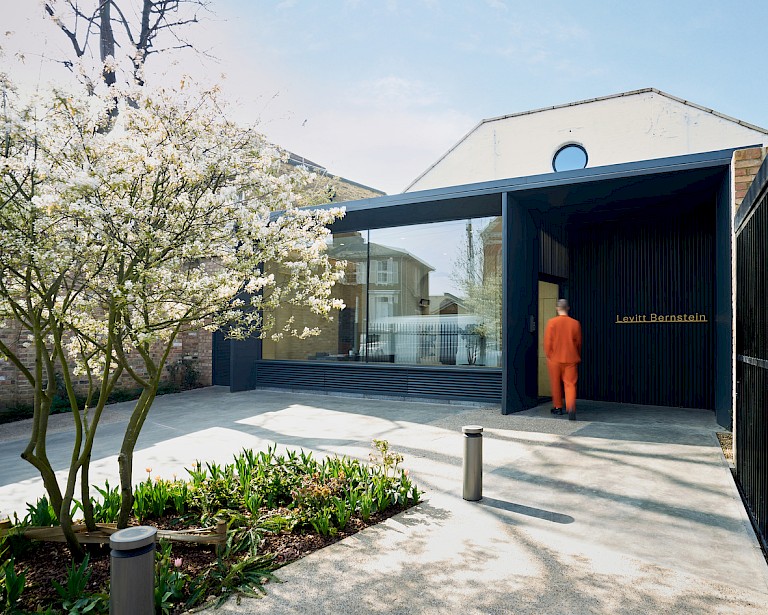
Environmental sustainability is one of Levitt Bernstein’s core goals. We aim to collaborate with like minded clients and consultants, working with them to improve sustainability strategies and effect change.
- Commitment to achieving Net Zero Carbon
We are a practice that strives to fix the planet rather than continue to break it. We report on the environmental and climate change impacts of the practice and set objectives and targets each year to improve our performance, which have become embedded into our daily working ethos.
The industry is on a journey towards net zero carbon and we have an opportunity to lead by example. As signatories of RIBA 2030 Climate Challenge, Architects Declare and regular contributors to the Low Energy Transformation Initiative (LETI) we campaign to push for faster change on our projects.
We opt to split out activities into ‘practice’ and ‘project’ to recognise the difference in approach to reducing the emissions of the practice and the influence we have on buildings we design and complete.
- Practice
We practice what we preach, by monitoring our carbon emissions, recycling rates, electricity and gas consumption, with the aim of reducing our impact on the environment through the setting of objectives and targets.
To this end we commit to achieving Net Zero Carbon for our operations by 2050.
- Projects
As architects we strongly believe that through retrofit, ultra low energy new build design and low upfront embodied carbon design and construction we can achieve best practice performance levels and ultimately net zero carbon.
We are working hard to turn advocacy into built reality by collaborating with clients, stakeholders and design teams to achieve a zero carbon future. This has led us to pursue ultra-low operational energy and low embodied carbon design in new build as the first step towards achieving zero carbon in operation.
By taking this approach to sustainability the building occupants are at the heart of the design to increase thermal comfort, reduce energy bills and provide an enjoyable places to be. We revisit projects on completion and use learnings to optimise the specification and future outcomes of all our projects, reducing long term running costs whilst optimising the quality and durability of buildings for the future.